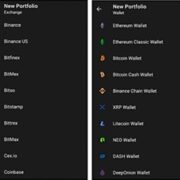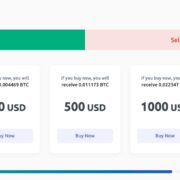The Netherlands is one of the leading countries in cryptocurrency and blockchain technology adoption. The country has become a hotbed for innovative projects, especially those related to Bitcoin (BTC). As the most established digital currency, BTC has had an immense impact on the Dutch economy. For more detail visit bitcoin dynamit review.
First and foremost, BTC has revolutionized the financial sector. The ability to transfer funds quickly and with low fees means that businesses can now process payments in real-time. This makes it easier for companies to keep up with the changing market landscape, as well as remain competitive against larger firms. Additionally, increased liquidity from BTC trading enables more efficient capital allocation across industries.
The secondary effects of BTC’s growth have also been far-reaching in terms of job creation. As the demand for blockchain-related professions has grown, so too has the number of jobs in this industry. This ranges from developers to entrepreneurs, all taking advantage of an emerging ecosystem and helping create a sustainable economic environment.
Moreover, BTC’s emergence as a viable form of payment has made it easier for individuals to purchase goods and services online without having to worry about currency exchange rates or international payments. This provides consumers with greater flexibility when making purchases and creates more opportunities for small businesses that are now able to tap into new markets across the world.
Finally, BTC has also been instrumental in promoting economic growth and development. The decentralization of its network means that transactions can take place between two parties without requiring any intermediaries. This allows smaller businesses to make more informed decisions and also provides them with more freedom when it comes to setting prices and expanding their operations.
Overall, BTC has been an important player in the Dutch economy, providing a wealth of benefits for businesses, consumers, and developers alike. As technology continues to progress and become even more accessible, there is no doubt that its role in the Netherlands will only continue to expand.
The Dutch economy has seen an increase in the usage of BTC as a payment method over recent years. This is due to its low transaction fees and fast transfer times, which have made it an attractive option for businesses and individuals in the Netherlands. Furthermore, BTC has also become increasingly popular among Dutch investors as a way to diversify their portfolios and gain exposure to new markets. As such, BTC has become an important player in the Dutch economy.
To support this growth, the Dutch government has taken steps to ensure that BTC is well-regulated and secure for investors. In addition, they have implemented measures to facilitate the use of BTC by businesses and consumers alike by creating a clear regulatory framework. This includes allowing companies to accept payments via BTC and providing tax incentives for those who invest in BTC.
In addition, the Dutch government has also taken steps to promote the adoption of BTC by educating its citizens on the benefits of using this digital currency. They have done this through campaigns that highlight how it can be used to make payments securely and quickly online. Furthermore, they have collaborated with start-ups to create innovative ways of using BTC in day-to-day activities such as shopping or sending money abroad.
Overall, BTC has become an important part of the Dutch economy and is expected to continue growing in the future. The government’s efforts towards encouraging its use have been instrumental in driving this growth and ensuring that its citizens are well-informed about the potential benefits of investing in this digital currency.
By adopting a supportive stance towards BTC, the Dutch economy is better positioned to benefit from opportunities that arise due to its usage. This includes creating employment opportunities in the form of start-ups and new businesses as well as giving consumers greater access to new financial services and products. As such, BTC has become an important part of the Dutch economy and is set to remain so for many years to come.




